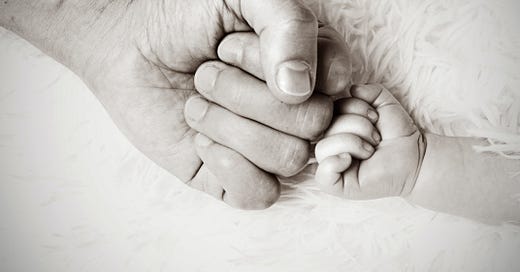At a party four months into Emily’s first pregnancy, I explained to someone I barely knew how my wife was enduring really bad morning sickness.
“Oh yeah,” this person said. “My wife threw up the entire nine months.”
Why would you tell me that? I wondered. Especially with Emily in earshot.
Any woman who has ever been pregnant and any partner who has ever been with a pregnant woman can assure you, people love to tell you their horror stories.
The stories start as soon as a woman’s belly begins to bulge, solicited or otherwise, and they don’t appear to stop, at least four years into a parent’s life.
They love to remember how sick they were during their pregnancy or how much more uncomfortable it gets or how whatever stage your child is in is tough but not to worry because it gets tougher.
They’ll walk up to you on the street or remark in line at the grocery store, armed with memories of their horrible birthing experience or the time their kid got lost in the woods for an entire day.
They tell you these stories with a smile and a laugh, appearing to remember these horrors fondly (as time is the best healer), and on at least one occasion, I’ve asked someone on the spot why on Earth they would tell an expecting parent such an awful story.
You don’t have to be Freud to realize that this is, of course, a convoluted way of forging a connection, of telling the pregnant or the new parents that they’re not alone in their suffering or that their fears are grounded in some sort of reality.
But in the end, they just serve to scare and upset people who are usually already frightened to some degree.
Whereas everyone can commiserate over bad news, we often feel like good news engenders competition.
It’s why, as a new or expectant parent, you don’t hear about easy births or sleep-filled nights nearly as often as you do about the horrors of parenting.
Often to Emily’s chagrin, I’m quick to tell new or expectant parents to hope for the good. I keep the horror stories to myself.
I don’t tell them about Emily’s months-long morning sickness or the tragedy of the miscarriage we suffered or how difficult it is to have children without the wisdom or guidance of our mothers.
I don’t tell them about our son’s hitting or biting phases or the fact that he is, at four-years-old, still shitting in diapers.
I don’t tell them how unfathomably hard it has been to have two children throughout a global pandemic.
Rather, I tell them how Emily pushed both of our children for less than fifteen minutes (after day-long labors, of course); I tell them about the trip we took to Italy when our son was only ten months old, reminding them that children are adaptable and pliable; I tell them that Emily and I resumed a healthy sex life almost as soon as her body was healed from the rigors of birth (but I also tell them that fucking with a sleeping child in the house requires a good bit of creativity); I tell them about our daughter, who has been miraculously sleeping through the night since she was just four-weeks old.
I don’t tell them that it took our son, on the other hand, nearly two years to sleep through the night.
Sharing the good news is my own little way of readjusting the way we connect over our shared experience of having and parenting children, of letting parents know that for all of the awful stories they’ve no doubt heard, they can hope for and expect some truly amazing adventures.
Some may hear my stories as gloating, sure. Some may curse me under their breath much the same way I subconsciously curse people who complain about their overbearing mothers.
How I would kill for an overbearing mother.
But if I’m going to make an effort to connect with a new or expecting parent, it’s not going to be aimed at scaring the shit out of them.
I’ll always remember one of the best pieces of parenting wisdom laid upon me, when I told my friend, a father of three and grandfather of one, that we were expecting.
He gently laid his fork beside his plate, chewed the last bit of shrimp and grits in his mouth, and asked me a simple question.
“You know which age is the best?”
“Which?”
“All of ‘em, man.”
It was one of the first times that I experienced a father (that wasn’t my own) relaying joy rather than foreboding and that simple little message has resonated in me throughout both of my children’s lives.
I also realized in that moment how easy it was for my friend to focus on the positives, to relay the good news, to assure a terrified dad-to-be that, yeah, this trip is going to be great.
And I’ve taken that tiny little message and made it my own, doing everything I can to tell new or expecting parents to do their best to ignore the horror stories, to focus on the good news.
I tell them that it’s hard, because it is. Being a father is the hardest thing I’ve ever done by a hundred-thousand country miles. But the joy that it brings far outweighs its difficulties.
Being a dad is hard as fuck.
But it’s also the most amazing thing I’ve ever done.




By far the greatest, most rewarding title you will ever hold! I say the same as a Mama too! :)